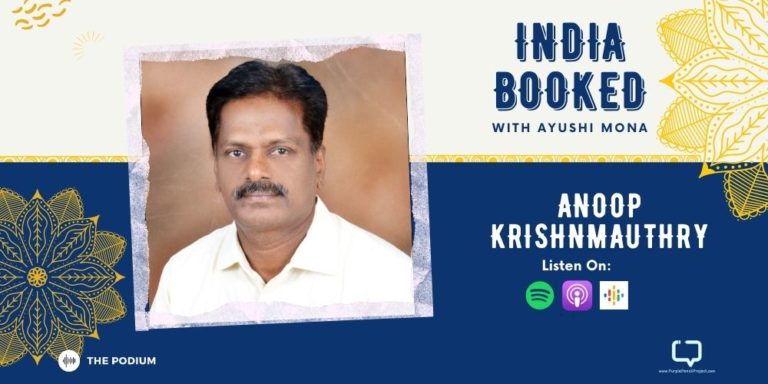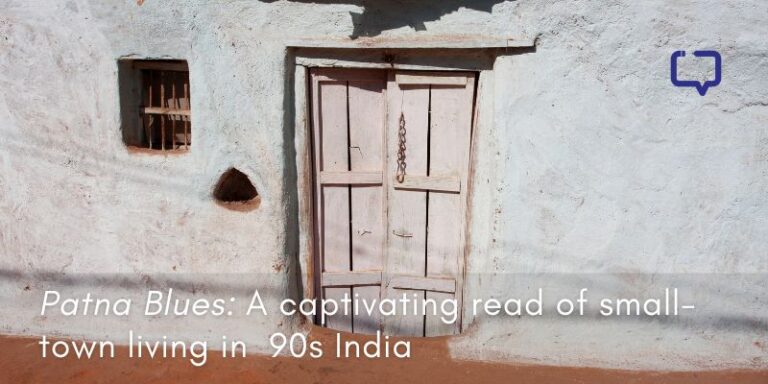Read Akankshya’s review of Battles of Our Own by Odia writer Jagadish Mohanty, translated from the Odia by Himansu S. Mohapatra and Paul St-Pierre
During the 1960-the 70s, Jagadish Mohanty was known as one of the most influential Odia writers. In his lifetime (1951-2013), Mohanty authored 13 short story collections and five novels. His writing was known for the simplistic representation of everyday life and people, combined with the self-reflective, existential thoughts of the characters. Battles of Our Own is the first novel by Mohanty that has been translated from Odia to English and published in 2022. The Odia title Nija Nija Panipatha was published in 1990.
We encourage you to buy books from a local bookstore. If that is not possible, please use the links on the page and support us. Thank you.
Battles of Our Own is a fast-paced story set in a fictional colliery in Western Odisha. The narrative has different characters, ranging from the lowermost position to the highest in a colliery, caught in the power politics of trade unions. From the outside, colliery people seem to form a mini-India considering they are gathered to work from various parts of the country. For example, Deshmukh is Marathi – has a history of being influenced by the RSS and then socialism; Om Prakash, a member of the trade union comes from Uttar Pradesh. However, when we look at the reality, far from being a cosmopolitan environment, it is a story about poverty and migration.
Caste, class, and character
Battles of Our Own by Odia writer jagadish Mohanty begins with the protagonist Pradyumna Mishra, a brahmin from Puri, coming in search of a job in the colliery and enlisting himself as a casual loader in the mines by changing his identity to a scheduled tribe man, Samaru Khadia. Simultaneously, there’s the story of Harishankar Pattnaik, a former trade union secretary, who finds a purpose for his life in forming a new trade union driven by the people, for the people.
The novel portrays the politics between the management and trade union with no leaf left unturned. It showcases, consistently, that politics is all about self-interest. The presidents of trade unions don’t care about the workers. The management cares about its reputation. It further lifts up the veil from trade unions being driven by the principles of communism. Consider this scene:
“He [Harishankar Patnaik] had been caught up in a romantic dream of emancipating innocent workers from the exploitation of mill owners through class struggle. Years of experience had taught him how absurd that dream was. A trade union was like a business: one had to lead a double life; one had to be pro-worker in front of the workers, but always ready to give in to management as if one’s very existence depended on their kind attention.” (47).
Identity, respect: life
The main themes of the story seem to be alienation and existential crisis. Pradyumna, despite getting a job, is constantly questioning who he is. He cannot bring himself to accept his new name, Samaru Khadia. He grieves for his old name and life as if the Pradyumna he used to be is now dead. He is torn in the transition of identity, an unwanted child since birth, he is constantly driven to the point of not knowing the purpose of his life. At the same time, Deshmukh is promoted to an officer in management. His inner turmoil only increases as his designation changes, he constantly seeks guidance to deal with trade unions while compromising his morals and principles.
Odia or English: The words come alive
The translators give us a vivid picture of Mohanty’s description of how the behavior of people changes when the designation changes. People who used to ignore Deshmukh upon being called were at his beck and call. The ones who saw him as powerless began seeing him as a shrewd manager. Such narration sheds light on the fact that irrespective of the existential crisis that a person might be going through, his social position is perceived differently by people.
Battles of Our Own depicts the dual lives that everyone lives in a colliery of Coal India. Mohanty doesn’t leave out any aspect of living in a colliery, from corruption to the ladies club, from mining sardar to foreman, from bullying trade union leader to a leader whose principles are overshadowed by slogans of defeating and death by his union members.
The book is a page-turner in every possible way. The existential introspection of characters, although repetitive, is made interesting by the unique history of how each character reached the Tarbahar colliery and what they hoped to make of their lives. Mohanty critically comments on the detachment of a politician from his family juxtaposing it with the detachment of trade unions from communism and marxism.
Conclusion
A must-read for anyone! I was thrilled to read it considering I grew up in a Coal India officer’s colony in Western Odisha. I have always had an urban view of national integrity but this translation changed my perspective, making me interested in the workers’ lives, protest movements, and migration. Although I do wonder about some choices of translators, like, calling sister-in-law ‘bhauja’ in a Marathi setting or translating certain food items but not pakhala. Looking forward to more translations of Odia literature, and more of the Odia writer.

As part of our effort to compensate our writers better, we at Purple Pencil Project have launched the #PayTheWriter initiative, where readers can directly show support and appreciation for our wonderful team.
Scan or upload this image on your UPI app, and show them the love 😀























